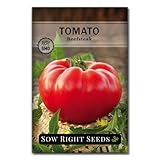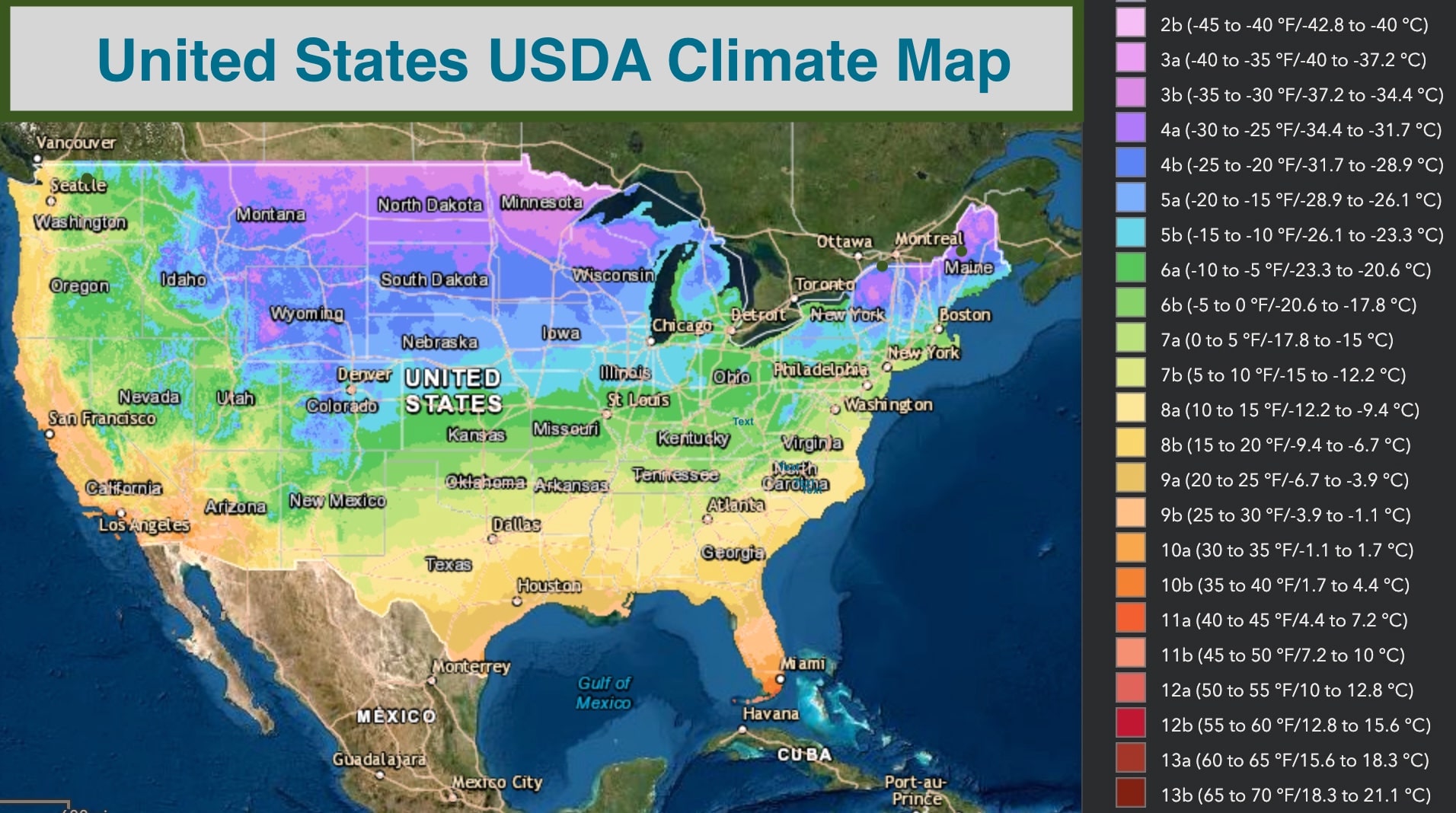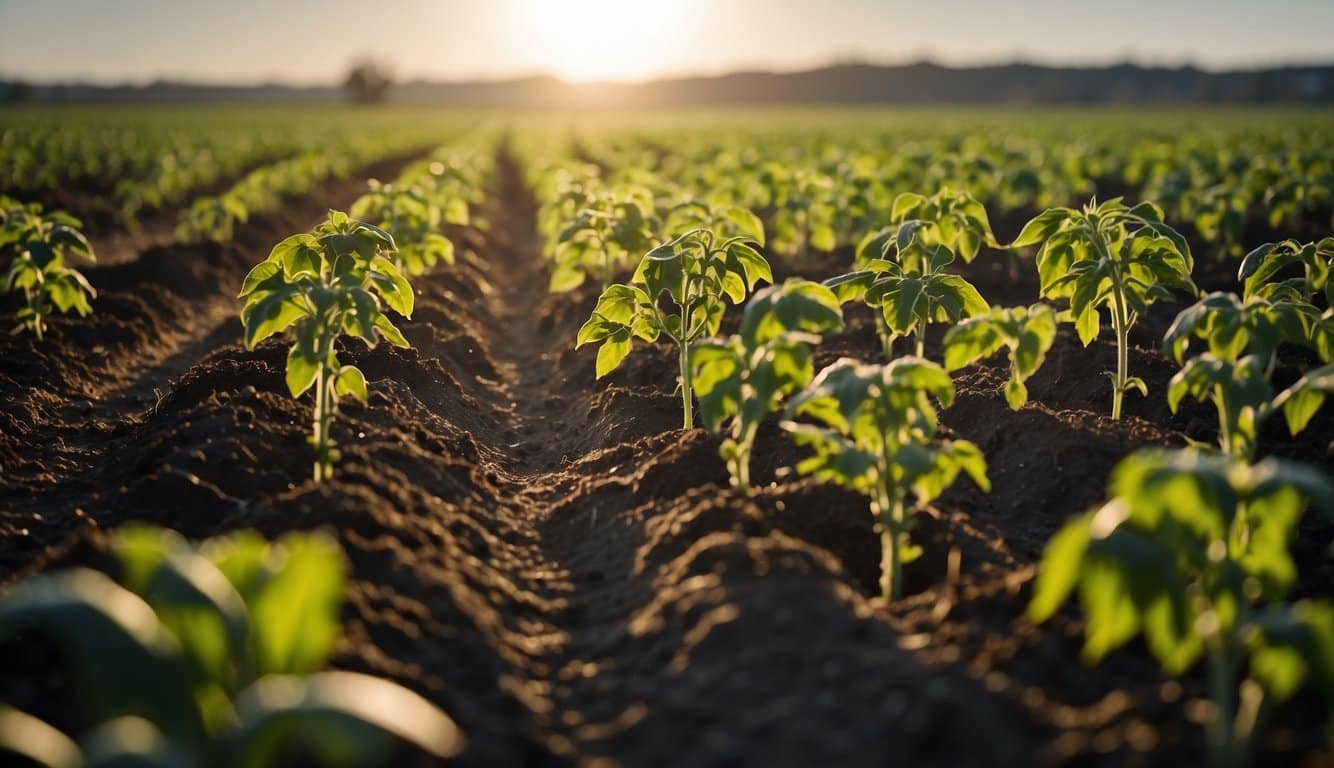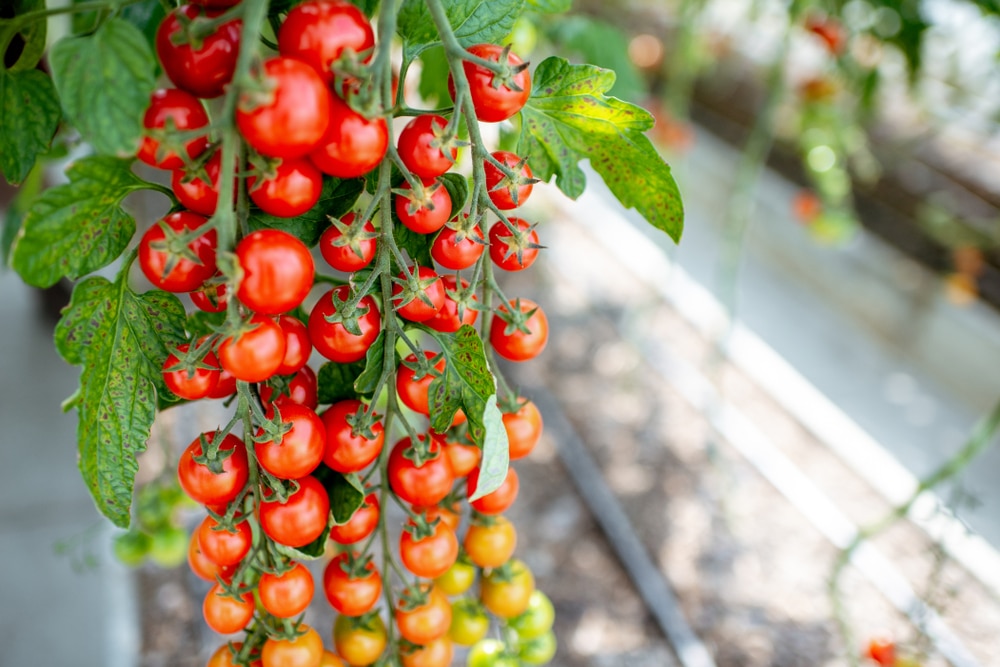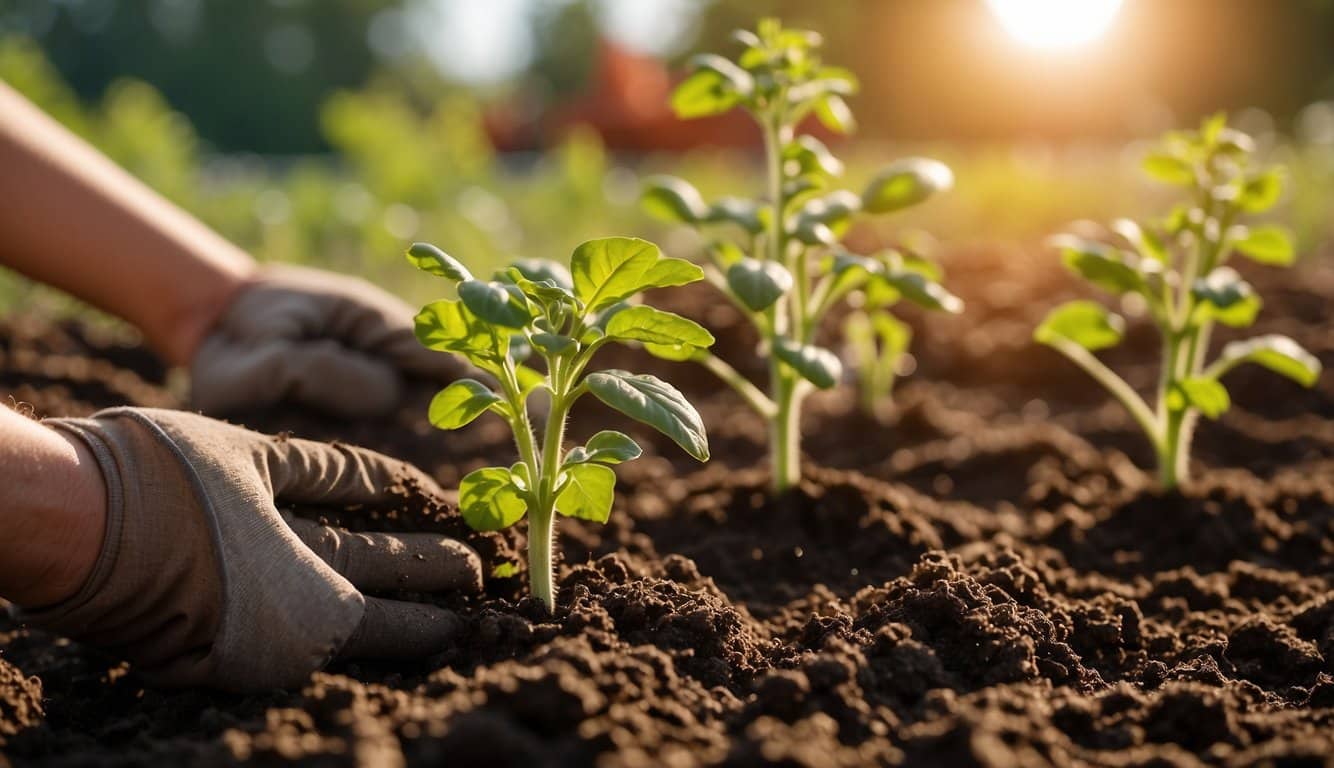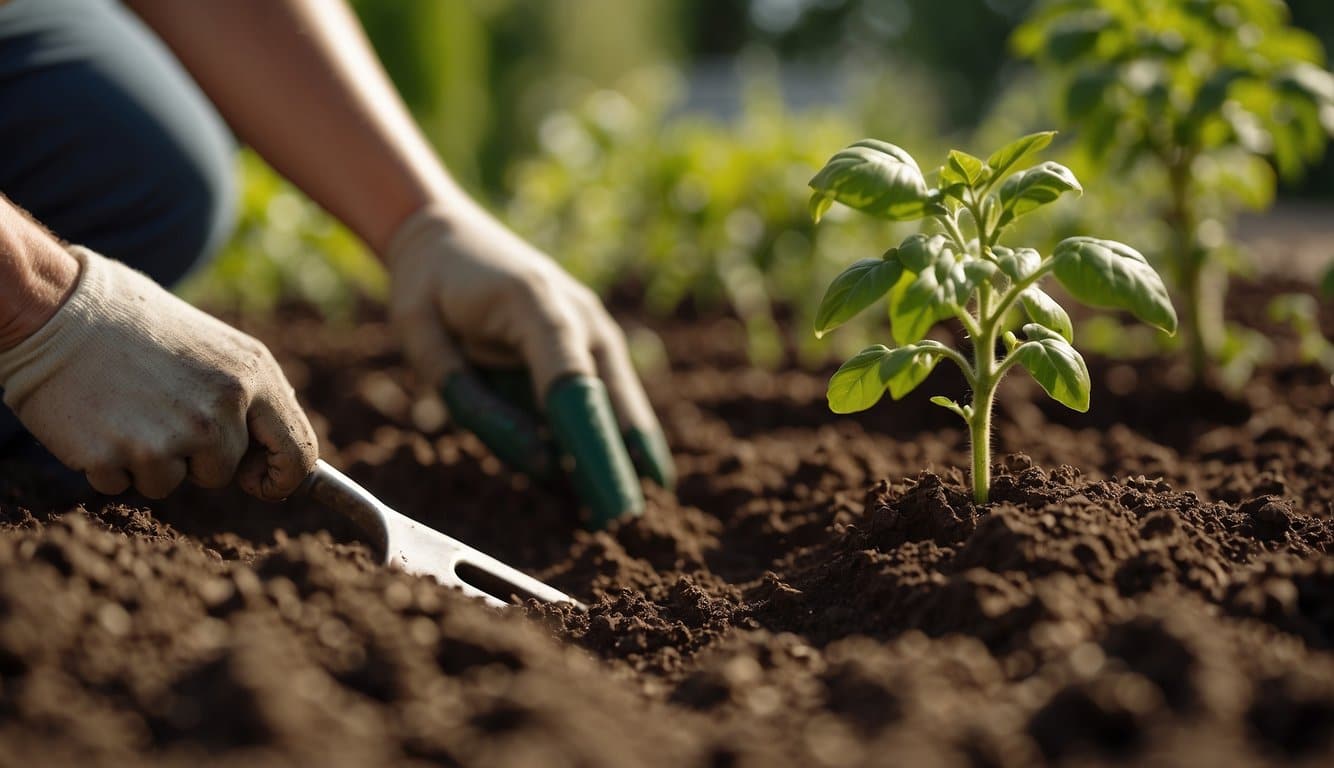| Question | What’s the best time of year to plant tomatoes in Nebraska? |
|---|---|
| Answer | After the last frost, typically late April to mid-May. |
| More Info |
|
In Nebraska, due to its varied climate, the best time to plant tomatoes outdoors is after the last frost date, which typically occurs from late April to mid-May, depending on the region. It’s advantageous for Nebraska gardeners to start tomato seeds indoors about 6-8 weeks prior to this date.
This strategy allows the seedlings to develop strength before being transplanted outside. Given the state’s climate, which can include cool springs and hot summers, selecting tomato varieties that can adapt to these conditions—such as those that mature early or are heat-tolerant—is key for a successful harvest.
Understanding Nebraska’s Climate Zones
When it comes to planting tomatoes in Nebraska, understanding the local climate is crucial.
Nebraska has four distinct climate zones, each with its own unique weather patterns and temperature ranges.
These zones are determined by the USDA Plant Hardiness Zone Map, which divides the country into 13 zones based on average annual minimum temperatures.
Nebraska’s climate zones range from Zone 4a in the northwest to Zone 6b in the southeast.
The northwest region experiences colder temperatures and a shorter growing season, while the southeast region has a longer growing season and milder temperatures.
To determine the best time to plant tomatoes in Nebraska, gardeners should consider their specific climate zone and the average last frost date in their area.
In general, tomato plants should not be planted outside until after the last frost date.
Gardeners in Zone 4a should wait until mid-June to plant tomatoes, while those in Zone 6b can plant as early as mid-May.
However, it’s important to note that these are general guidelines. Gardeners should always pay attention to local weather patterns and adjust their planting schedule accordingly.
In addition to the average last frost date, temperature plays a significant role in tomato growth.
If the temperature drops below 50°F, tomato plants can suffer from cold stress, leading to stunted growth and reduced yield.
Therefore, it’s important to monitor the weather and protect tomato plants from cold temperatures using frost blankets or other protective measures.
Optimal Planting Times for Tomatoes in Nebraska
When planting tomatoes in Nebraska, you should keep in mind the spring frost dates and soil temperature requirements. By doing so, you can ensure that your tomato plants have the best chance of thriving and producing a bountiful harvest.
Spring Frost Dates
The last spring frost date in Nebraska typically falls around mid-May. However, it’s important to note that this can vary depending on your specific location within the state.
To determine the last frost date in your area, you can use the USDA Plant Hardiness Zone Map or consult with your local extension office.
Once you have determined the last frost date in your area, you can use that date as a starting point for planting your tomato seeds or transplants.
It’s generally recommended to wait until after the last frost date to plant tomatoes, as they are sensitive to cold temperatures and frost can damage or kill young plants.
Soil Temperature Requirements
In addition to spring frost dates, it’s important to consider soil temperature when planting tomatoes in Nebraska.
Tomato seeds and transplants require warm soil temperatures to germinate and grow. The optimal soil temperature for planting tomatoes is between 60-85°F.
To ensure that your soil is warm enough for planting, you can use a soil thermometer to measure the temperature at a depth of 4 inches.
If the soil temperature is below 60°F, it’s best to wait until it warms up before planting your tomatoes.
Selecting Tomato Varieties for Nebraska
When selecting tomato varieties for Nebraska, there are a few things to keep in mind.
First and foremost, you’ll want to choose a variety that is well-suited to the climate and growing conditions in your area. This will help ensure that your plants thrive and produce a bountiful harvest.
One important factor to consider is the length of your growing season.
In Nebraska, the growing season can vary depending on your location, with some areas having a shorter season than others.
If you live in an area with a shorter growing season, you may want to choose a variety that matures quickly, such as Early Girl or Stupice.
Another factor to consider is disease resistance.
Some tomato varieties are more resistant to common diseases like verticillium wilt and fusarium wilt than others.
Choosing a disease-resistant variety can help ensure that your plants stay healthy and productive throughout the growing season.
Here are a few popular tomato varieties that are well-suited to growing in Nebraska:
- Roma: This variety is known for its meaty texture and low water content, making it great for sauces and canning.
- Celebrity: A popular hybrid variety, Celebrity is known for its disease resistance and high yield.
- Beefsteak: As the name suggests, this variety produces large, meaty tomatoes that are great for slicing and sandwiches.
- Cherry: Cherry tomatoes are a popular choice for snacking and salads, and they’re also great for adding color and flavor to dishes.
Preparing the Garden for Tomato Planting
Soil Preparation
Before planting tomatoes in Nebraska, it is important to prepare the soil properly.
The soil should be well-draining, fertile, and have a pH level between 6.0 and 7.0.
If the soil is too acidic, it can be amended with lime to raise the pH level. On the other hand, if the soil is too alkaline, sulfur can be added to lower the pH level.
Adding organic matter such as compost, aged manure, or leaf mold to the soil can help improve soil structure, increase water retention, and provide essential nutrients for the plants.
It is recommended to add 2-3 inches of organic matter to the soil and mix it in thoroughly.
Location and Sunlight
Tomatoes require full sun to grow and produce fruit, so it is important to choose a location in the garden that receives at least 6-8 hours of direct sunlight per day.
The area should also be protected from strong winds, as they can damage the plants and reduce fruit production.
It is also recommended to rotate the location of tomato plants in the garden every year to prevent soil-borne diseases from building up in the soil. Ideally, tomatoes should not be planted in the same location for at least three years.
Tomato Planting Techniques
When planting tomatoes in Nebraska, there are a few techniques that can help ensure a successful harvest. Here are some tips to keep in mind:
Choosing the Right Location
Tomatoes require a lot of sunlight, so it’s important to choose a location that receives at least six hours of direct sunlight each day.
They also need well-draining soil that is rich in organic matter. If your soil is heavy clay, consider adding compost or other organic matter to improve drainage.
Planting Time
The best time to plant tomatoes in Nebraska is typically between June 20th and June 22nd.
However, if you want to get a head start on the season, you can start your seeds indoors 4-6 weeks before the final spring frost in your area. This will give your plants a head start and help ensure a bountiful harvest.
Planting Depth and Spacing
When planting your tomato seedlings, be sure to bury them deep enough so that only the top few leaves are showing above the soil. This will help encourage strong root growth.
For cage tomatoes, space them 4 feet between rows and 24 to 36 inches apart. For staked tomatoes, space them 2 to 3 feet apart.
Watering and Fertilizing
Tomatoes need consistent moisture to thrive, so be sure to water them regularly, especially during dry spells.
However, be careful not to overwater, as this can lead to root rot.
Fertilize your plants with a balanced fertilizer once a month to help promote healthy growth.
Frequently Asked Questions
What is the optimal time of year to start tomato seedlings indoors in Nebraska?
The optimal time to start tomato seedlings indoors in Nebraska is approximately six to eight weeks before the last expected frost date. This typically occurs in late April or early May. Starting tomato seedlings indoors allows them to establish a strong root system before they are transplanted outdoors.
How soon after the last frost can tomato plants be safely transplanted outdoors in Nebraska?
Tomato plants can be safely transplanted outdoors in Nebraska two to three weeks after the last expected frost date. This is typically around mid-May in Nebraska. It is important to ensure that the soil temperature is warm enough for the plants to thrive.
What are the recommended dates for planting tomatoes in the ground in Nebraska?
The recommended dates for planting tomatoes in the ground in Nebraska vary depending on the location and climate. In general, it is best to plant tomatoes in late spring, typically in May, when the risk of frost has passed. It is important to monitor the soil temperature and ensure that it is warm enough for the plants to thrive.
Which month typically marks the beginning of tomato planting season in Nebraska?
The beginning of tomato planting season in Nebraska typically occurs in May, after the last expected frost date. However, the exact timing may vary depending on the location and climate.
How does the Nebraska climate affect the tomato planting schedule?
The Nebraska climate can have a significant impact on the tomato planting schedule. In areas with shorter growing seasons, it may be necessary to start tomato seedlings indoors earlier or plant them later in the season. It is important to monitor the weather and adjust the planting schedule accordingly.
What are the signs that it is the right time to plant tomatoes in Nebraska?
The signs that it is the right time to plant tomatoes in Nebraska include warm soil temperatures, consistent weather patterns, and the absence of frost.
It is important to ensure that the plants have enough time to establish themselves before the onset of hot summer weather.
Last update on 2025-06-06 / Affiliate links / Images from Amazon Product Advertising API

